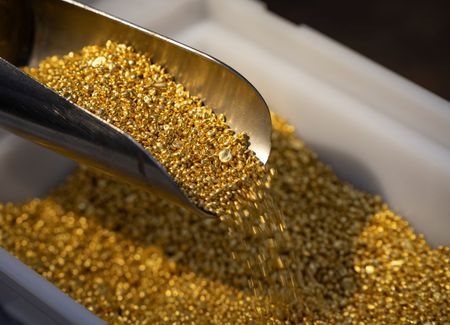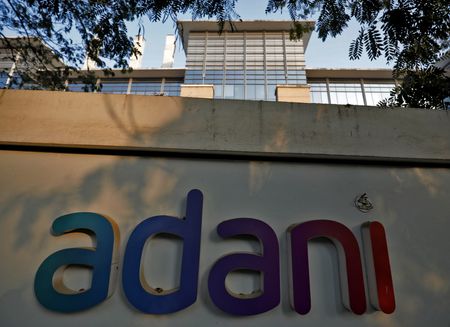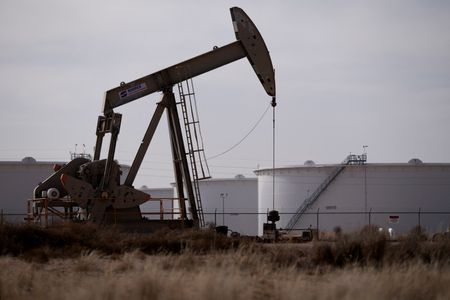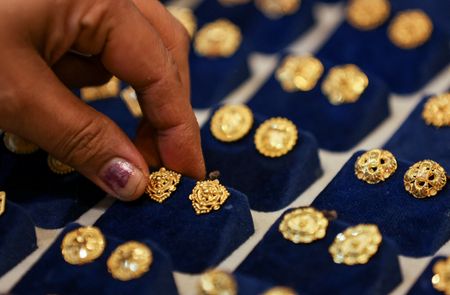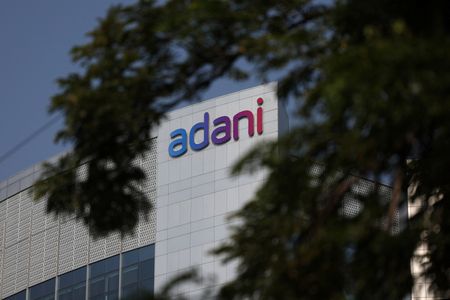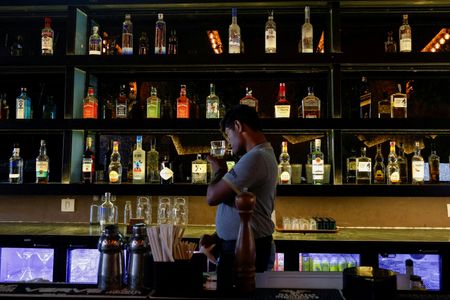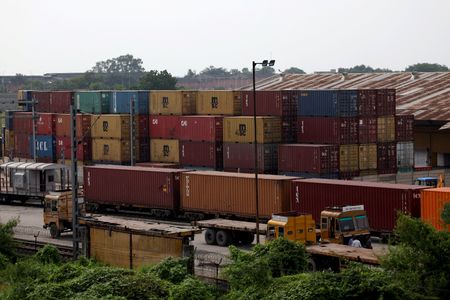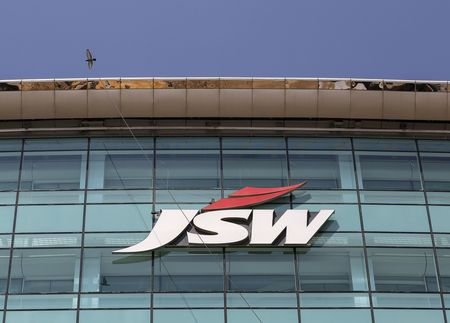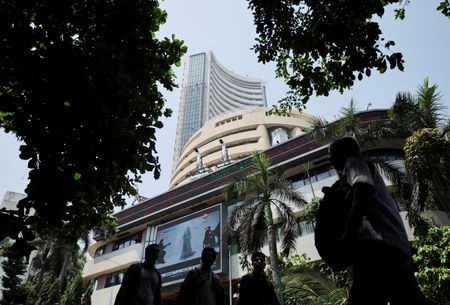By Anmol Choubey
(Reuters) – Gold prices continued their record rally on Monday and broke through the key $2,900 level for the first time, driven by safe-haven demand as U.S. President Donald Trump’s new tariff threats amplified trade war and inflation concerns.
Spot gold surged 1.6% to $2,905.24 per ounce, as of 01:45 p.m. ET (1845 GMT), after hitting a record high of $2,911.30 earlier in the session. U.S. gold futures settled 1.6% higher at $2,934.40.
“Obviously the tariff war is behind the rise; it just reflects more uncertainty and more tension in the global trade situation,” said Marex analyst Edward Meir.
Trump announced plans on Sunday to impose an additional 25% tariff on all steel and aluminium imports. He also said he would announce reciprocal tariffs this week, matching rates imposed by other countries and applying them immediately.
Tariffs may exacerbate U.S. inflation, with investors awaiting U.S. Consumer Price Index (CPI) and Producer Price Index (PPI) data due later in the week.
If the CPI and PPI data surprise on the downside, it may weigh on the dollar and inflate gold prices, while an upside surprise could push up U.S. yields and strain gold, albeit mildly due to the market’s resilience and buyer interest during dips, Meir said.
Federal Reserve Chair Jerome Powell is also due to testify before Congress on Tuesday and Wednesday.
Bullion has already hit its seventh record high this year, driven by Trump’s tariff threats, which have fueled uncertainty over global growth, trade wars, and high inflation, prompting investors turn to gold as a safe-haven asset.
Phillip Streible, chief market strategist at Blue Line Futures, said gold’s 45-degree rally since December might create a self-fulfilling prophecy of further price increases, potentially leading it to raise its forecast to around $3,250 or $3,500.
Spot silver rose 0.8% to $32.05 per ounce after hitting a three-month high on Friday.
Platinum added 1.5% to $990.74 and palladium gained 2.1% to $985.40.
(Reporting by Anmol Choubey in Bengaluru; Additional reporting by Swati Verma; Editing by Christina Fincher, Alan Barona and Mohammed Safi Shamsi)

